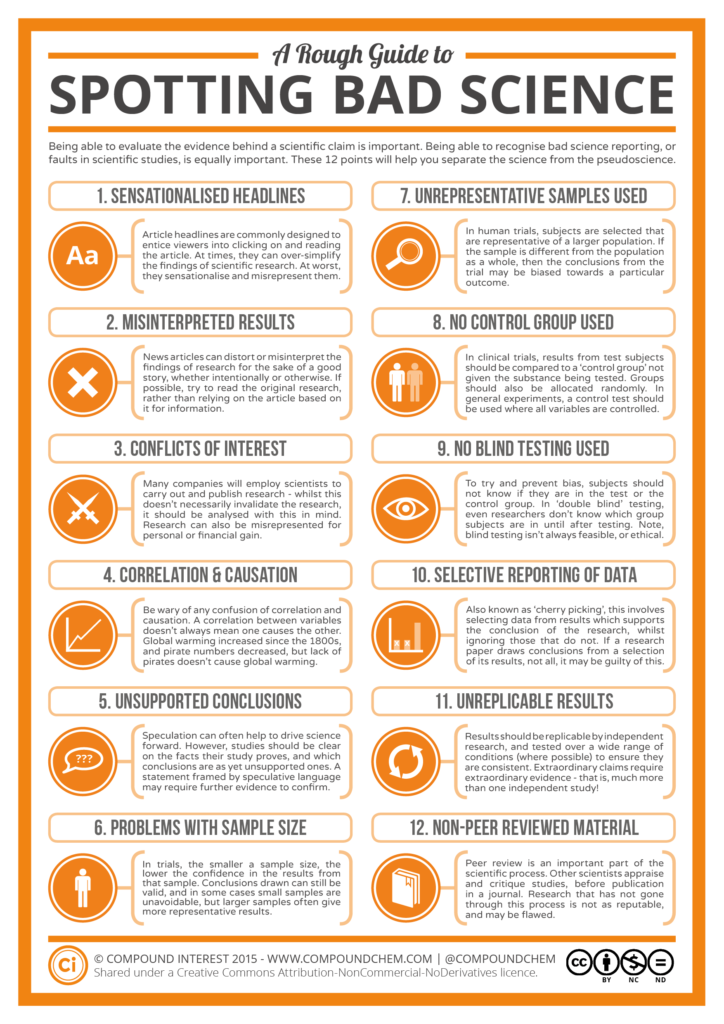By Lauriel Earley
Using the internet gives you access to a wealth of information, but sometimes it’s too much! How do you recognize the good information from the junk information? How do you know if the article you’re reading is true? How do you know if someone is trying to trick you?
Now that Tamara has written a wonderful article on where to find good science, I’m going to help you learn how to spot bad science. Here are some easy guidelines that can let you know if what you’re reading is a well-researched science article or something that is actually fake science:
1) Avoid click-bait headlines.
If the article starts with headlines like: “You won’t believe …” or “10 things you need to know…” or “The new trick that doctors hate….”, you can bet it’s not a good source of information. These articles are only written to trick you into clicking on them so the website can get money from advertisers. They are sensationalized to get your attention, but real science isn’t usually sensational. Real science is made in tiny steps, and it can take years to answer even simple questions.
2) Avoid articles that have dramatic and sensationalized words.
Sometimes people write about a topic to try and convince you that their opinion is right, not because they want to explain it. These articles have inflammatory language meant to make you emotional. Some examples are: “the most powerful multinational polluters on earth”, “massive quantities of undisclosed, experimental toxic pesticides”, and “chaos will erupt across America in less than 100 days”. Real science articles won’t have this kind of language, and a scientist will always use rational arguments and evidence to try and prove a point.
3) Make sure the article has references, and then check them!
A good science article will have references so that you can find out where the writer got their information from and so that you can check it yourself to make sure it’s correct.
4) If something seems unbelievable, it probably is.
If you read a headline that seems unbelievable or is too good to be true, it probably is. Is it true that blueberries can cure cancer? No. Is it true that Hillary Clinton died in 1998 and has been replaced by a clone? Of course not. A good scientist will think about a claim carefully before accepting it is true. If you’re unsure, you can try checking Snopes or Wikipedia. Remember, neither Snopes or Wikipedia count as primary sources, but they are a good place to start if you are unsure about a topic.
Here are some good articles to check out if you want to learn more about how to spot bad science and not get fooled:
A rough guide to spotting bad science
Top 10 Ways to Spot Bad Science
The main point is to remain skeptical! Don’t accept something is true just because you read it on the internet or your best friend told you it was true.
Edited by Temperance Rowell and Sarah Marks

